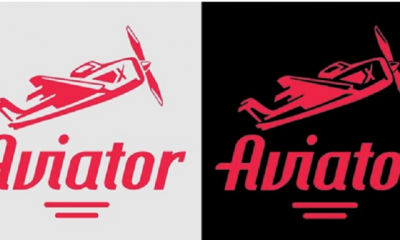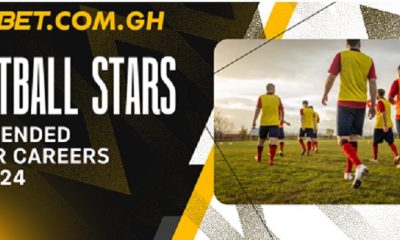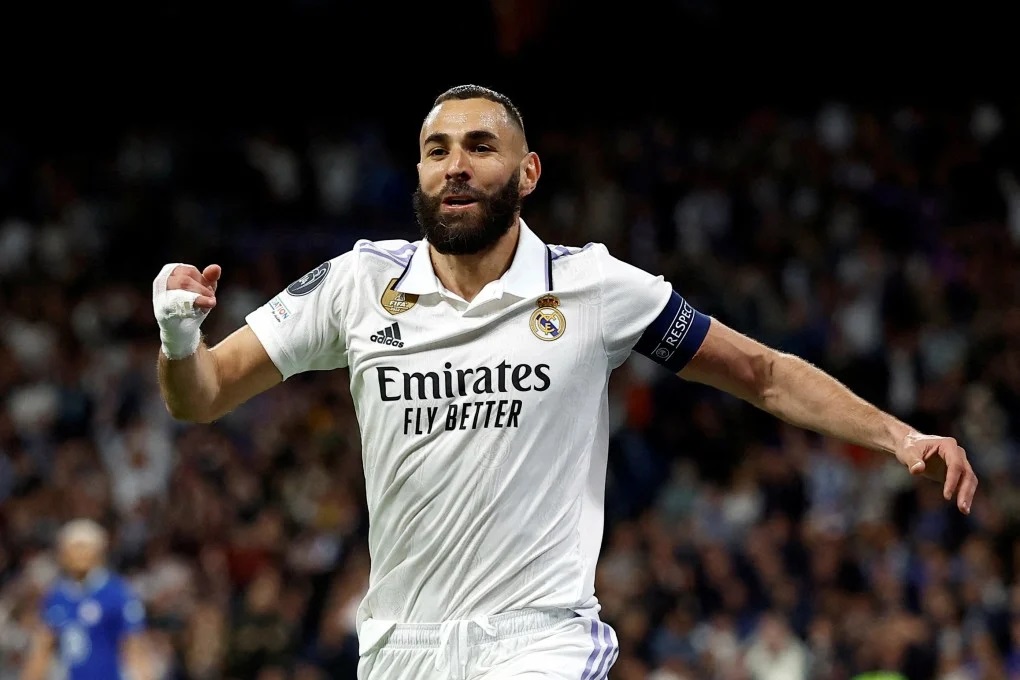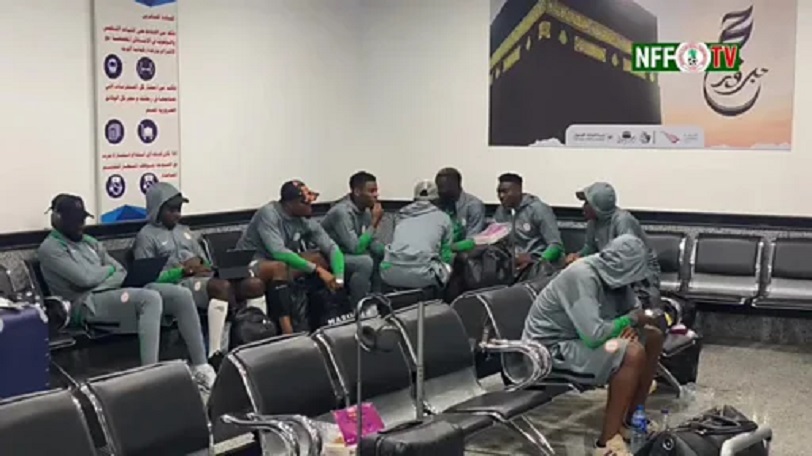Sports
African Football Talent Faces European Poaching: Clubs Struggle to Retain Emerging Stars Amid Foreign Offers
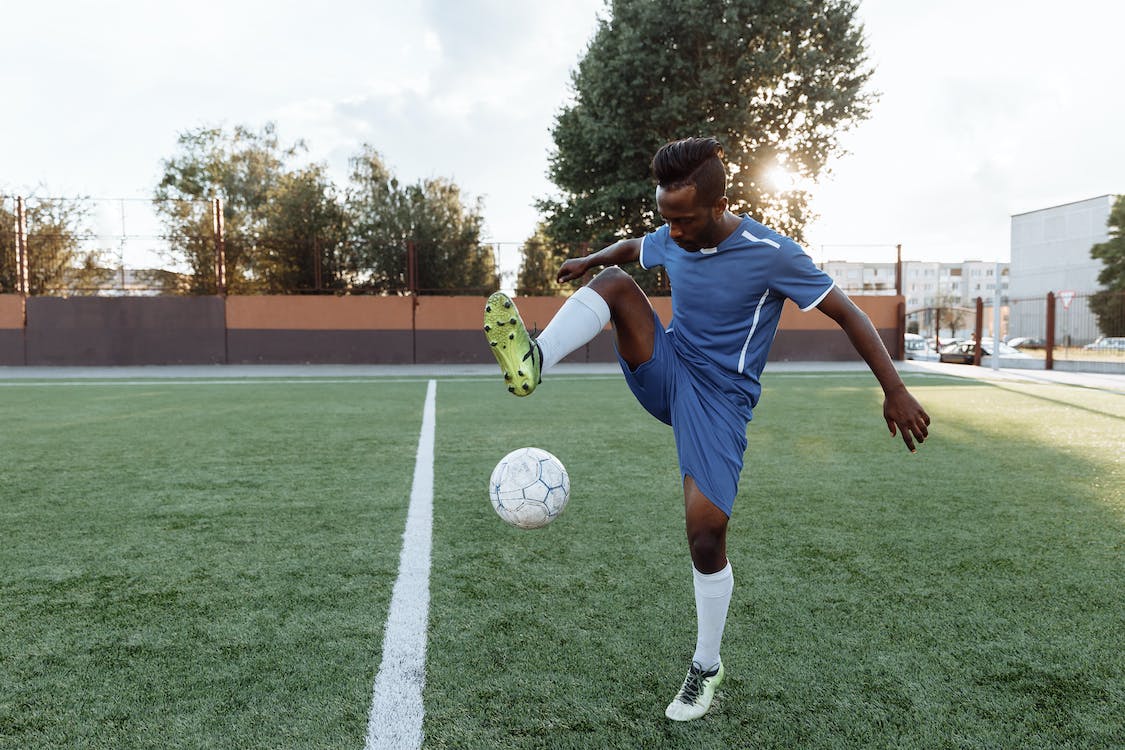
Global attention is on African football talent, which brings unique strength and style to some of the most prestigious European leagues. In recent years, the transfer of African players has grown, with top leagues in England, France, and Italy actively scouting emerging stars from across the continent. With limited resources, African clubs develop talent that is noticed by scouts of high-profile clubs. Egypt’s Mohamed Salah and Senegal’s Sadio Mane have both become household names internationally, leading their teams to major victories. The quality that comes from African leagues and the demand it creates worldwide is exceptional, and this movement is proof of that.
Global Human Exodus: Africans Lured Away by Other Countries
Football is only one field in which skilled Africans have migrated, with medicine, engineering, and science, among others. Nigeria and Ghana are in high demand for medical professionals across Europe and North America because of shortages in those regions. African engineers, mostly from South Africa and Egypt, also tend to take jobs in international firms, lured by higher wages and more advanced training. Athletics and basketball also see strong representation: African-born NBA players, like Cameroon’s Joel Embiid, bring global attention to basketball, while Kenyan and Ethiopian runners dominate long-distance races worldwide. African countries are left grappling with expertise gaps, which is why talent retention is becoming a growing priority across sectors.
The Core of the Matter: Countries with the Highest Talent Outflow
Nigeria and Senegal are leading the way in exporting football talent to Europe, but they’re not alone. Players from the Ivory Coast, Ghana, and Cameroon are always producing and quickly attracting attention abroad. Indeed, Nigeria has more than 200 players playing in leagues across the globe, most of whom include names in the top leagues, such as in England and Italy. It’s following a historic trail: French talent is pulled from former colonies like Senegal and Ivory Coast, places where language and cultural affinity makes the transition easier.
Sports betting fans have long noticed that athletes from Africa, regardless of what club or country they represent, are always of a high level and have a great chance of winning. Modern betting tools, such as the Melbet official app, allow one to track the success rates of athletes and their dynamics, helping to make the right choice.
In fact, Senegal’s football federation even works with French clubs to run training programs. Algeria and Morocco are also high migration destinations for North African countries to French and Spanish leagues, which gives European competitions a unique diversity of play styles.
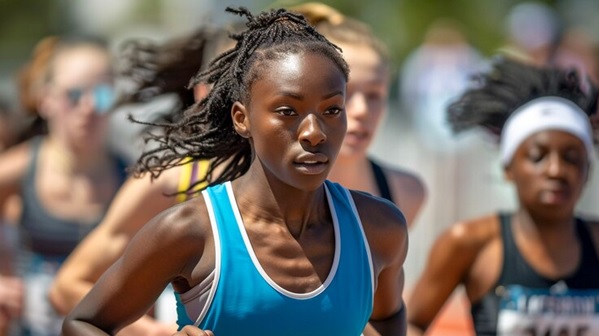
Not Just a Dream: The Business of Youth Academies in Africa
Top European clubs are drawing scouts to African youth academies that are shaping future stars. Ghana’s Right to Dream and Senegal’s Diambars Academy are two such academies that offer intense training and education, along with international teams and much more. These academies are mainly funded by European clubs that want to sign those who are young and aim to bring them up abroad to get resources and pathways for standout players. Interestingly, Diambars was founded by former Senegalese players to boost local football, but it’s also a gateway to Europe for rising stars. The early connection assures a steady line of spiraling, where young players, often under 18, move into the European football system and quickly learn to adapt to its requirements.
Who’s Signing Them? Clubs Known for Targeting African Players
African players are good assets for competitive leagues, and some European clubs are especially interested in signing African players. Lille and Monaco lead the way, with Lille producing stars such as Nigeria’s Victor Osimhen before his record transfer to Napoli. Finally, English clubs are also major destinations, and Arsenal has been instrumental in bringing players such as Thomas Partey from Ghana. Osimhen and Senegal’s Kalidou Koulibaly joined Napoli in Italy’s Serie A to bolster its defense. However, many of these clubs often set up scouting networks and links in Africa to monitor the best talent as early as they can and to secure the best players.
As this research shows, several factors drive African players to European clubs beyond just salary differences:
- general economic stability and great opportunities for career growth
- easy transition due to cultural ties thanks to a common language (especially for French-speaking regions)
- professional training facilities and quality infrastructure
- no restrictions on clubs in terms of resources spent
- access to high-level competitions and international recognition
But this is well known in Africa itself, so today there are already active measures. So clubs and governments of countries want to keep their best people, and they try to make their conditions no less comfortable than abroad.
Holding the Line: How African Clubs are Fighting to Keep Their Stars
African clubs are coming up with creative ways to keep top talent from leaving. Egypt’s Al Ahly and Tunisia’s Espérance, for instance, pay competitive salaries backed by local sponsors that are comparable to what mid-level European clubs do. More clubs in Nigeria are sealing local brand partnerships in a bid to pad income and make contracts more appealing. Better medical and training amenities also allow players to stay interested and pursue better training facilities, as South African Mamelodi Sundowns, for instance, are setting new standards in player care. It is true that it is difficult to surprise anyone in the world of sports with standards of providing the best service – for example, MelBet customer care has long been providing the best conditions to its clients, regardless of what country they are in. And melbet account registration has become a level higher in terms of convenience and speed for users.
African clubs are also partnering with government programs and foreign investors to further strengthen their financial base. Clubs in Morocco and South Africa offer educational programs for young players as a backup career path and long term stability.
FIFA and CAF’s Role: Curbing the Exodus of Young Talent
FIFA and the Confederation of African Football (CAF) are using their funds to protect African talent by funding youth programs across the continent. For example, the FIFA Forward program provides financial support to build and coach at the local level. The Win-Win program fosters partnerships between African and European clubs in a bid to improve training associated with bringing young players closer to home.
New transfer rules bring further protection, especially for under 18 players, with restrictions on international moves and an attempt to stop early poaching. FIFA also introduced regulations which monitor the behaviour of both players and agents in order to reduce exploitation by agents; ensuring young athletes have a more secure pathway into professional football. The success or failure of such decisions in the near future will determine the character of African sport for decades to come, analysts say.
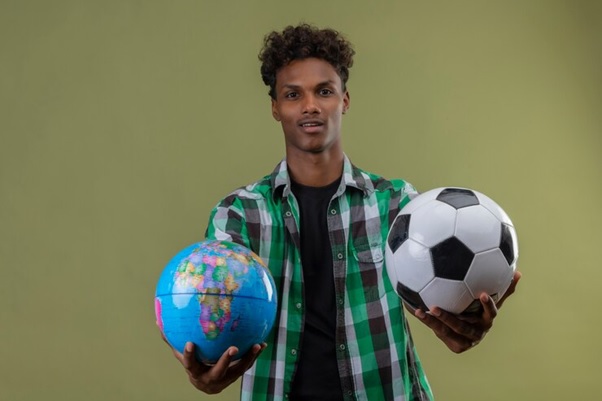
Loyal to Their Roots: Players Who Stayed in Africa Their Whole Careers
Some African football legends have decided to give their entire careers to their home leagues, even with lucrative offers from abroad. Mohamed Aboutrika, the former Egypt star player, spent all of his professional career with Egyptian side Al Ahly, where he has led them to many African Champions League victories. Always refusing international offers, he became a national hero for his loyalty to local football. If you want to get to know his legacy and that of other football legends better, you can do so at MelBet Sport, with reports on every athlete and access to hundreds of football match replays.
South Africa’s Doctor Khumalo, who played for Kaizer Chiefs, one of the country’s top teams, could have gone international but chose to stay home. Aboutrika and Khumalo are players who inspire young athletes to know that football careers can be built in African leagues.
Back to the Roots: European Stars Who Returned to Africa
African players with European careers often decide to return home and play or coach. After a successful stint at Chelsea, Didier Drogba returned to support local football, first with Phoenix Rising FC in the US and later in his native Ivorian football development. Like Eto’o, Samuel Eto’o spent his final seasons in Qatar and Turkey but has since used his post-retirement efforts to build football infrastructure in Cameroon.
Others, such as South Africa’s Benni McCarthy, who played in England’s Premier League, went into coaching, like Cape Town City FC. McCarthy’s European experience has been a valuable asset to him, setting new coaching standards in African leagues.
Conclusion: The Road Ahead for African Football Talent
With clubs scouring young players internationally, keeping African football talent within the continent is proving to be a challenge. However, the provision of greater investment in African youth Academies and partnerships with local clubs provide improved resources to develop and keep talent. FIFA and CAF also back such programs, which offer stronger protections for young players, but also ensure that they have opportunities to develop at home.
However, the path to Europe still seems attractive since the competition is strong and opportunities for career development are present. But as African clubs continue to grow financially and technically, they may provide viable alternatives for players looking for professional success, right at home.
Sports
Golf Training, Tournament Hold March 8 in Warri North
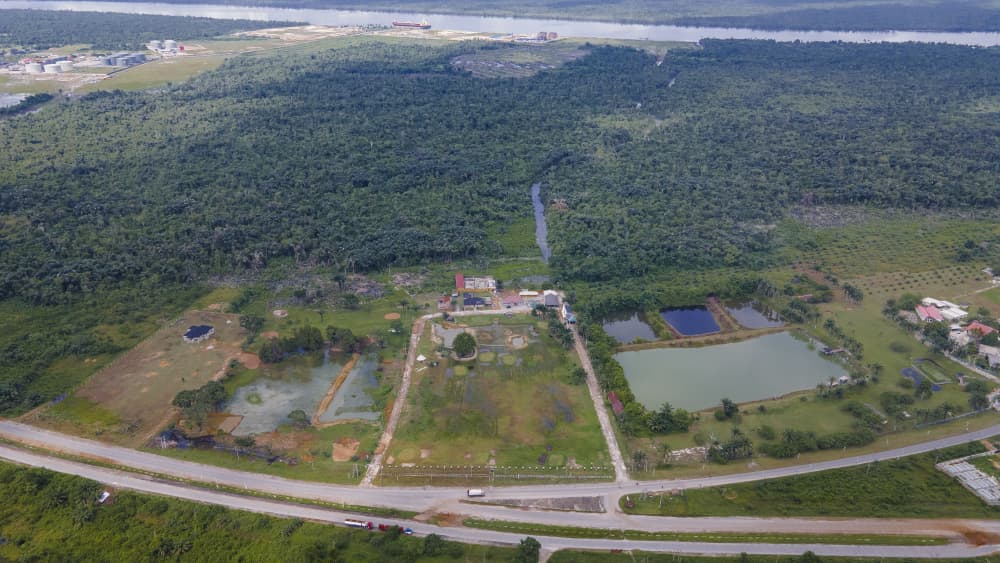
By Henry Ovie
A one-day golf training and tournament specifically for girls has been fixed for Sunday, March 8, 2026, in Koko, in the Warri North of Delta State.
A statement from the organisers of the event, Canaan Land Golf Training and Tournament, disclosed that about 50 girls would be accommodated.
Tagged The Biggest Giving Day of the Year, the programme, according to the chief executive of Akogate Group, Mr Felix Aganbi, will entrench the attitude of excellence and develop young, highly quality golfers in terms of their golf quality and personal character.
He urged parents in Nigeria and abroad to allow their daughters to attend the event, saying it will build their confidence.
“The golf training and tournament will introduce girls to golf in a social and engaging environment. It will also help them build confidence, learn vital skills, and connect with others in a friendly community,” he was quoted as saying in the statement on Thursday.
The programme, which will take place at the Canaanland Golf and Country Club, celebrates the social, economic, cultural and political accomplishments of women as well as raises awareness for accelerated gender parity
“Open to girls in years 8-16, the training and tournament provide high-quality coaching to assist the girl child in pursuing excellence in the sport of golf,” Mr Aganbi noted, listing technical skill development, comprehensive fitness and mental conditioning as key features of the training.
“The girls will learn the basics of golf grip, stance, posture alignment, golf rules and etiquette. They will also be taken for an 18-hole playing lesson.
“The training and tournament will broaden opportunities for girls in Nigeria to realise their potential through education.
“Canaanland Country Club shall continue to encourage the education of females, improve the economic position of women and enhance their participation in matters relating to both the family and the society.
“It is also to join hands with the government in making our state a better place to live, campaign for the dismantling of systemic barriers and push for the power of reciprocity and abundant giving,” he disclosed.
Driven by Sir Alfred and Mrs Warami Temile, Mr Aganbi said the “club would continue to provide necessary assistance for the general development of people, especially those who live in the rural areas.”
In a related development, Mr Aganbi said the Oluremi Tinubu Golf Classic would take place on Saturday, April 25, 2026, at Canaanland Golf and Country Club, Koko.
“The tournament will attract international talent, create opportunities for emerging players and motivate the next generation to see what is possible in the women’s game,” he stated, adding that over 75 women are expected to participate.
The event is another important step in strengthening the women’s game in Nigeria, delivering significant benefits to the Niger Delta, drawing women, officials and fans to Warri North and boosting tourism and hospitality industries in Delta State.
Sports
Access Bank Lagos City Marathon Top 10 Finishers Share N10m from Aquafina
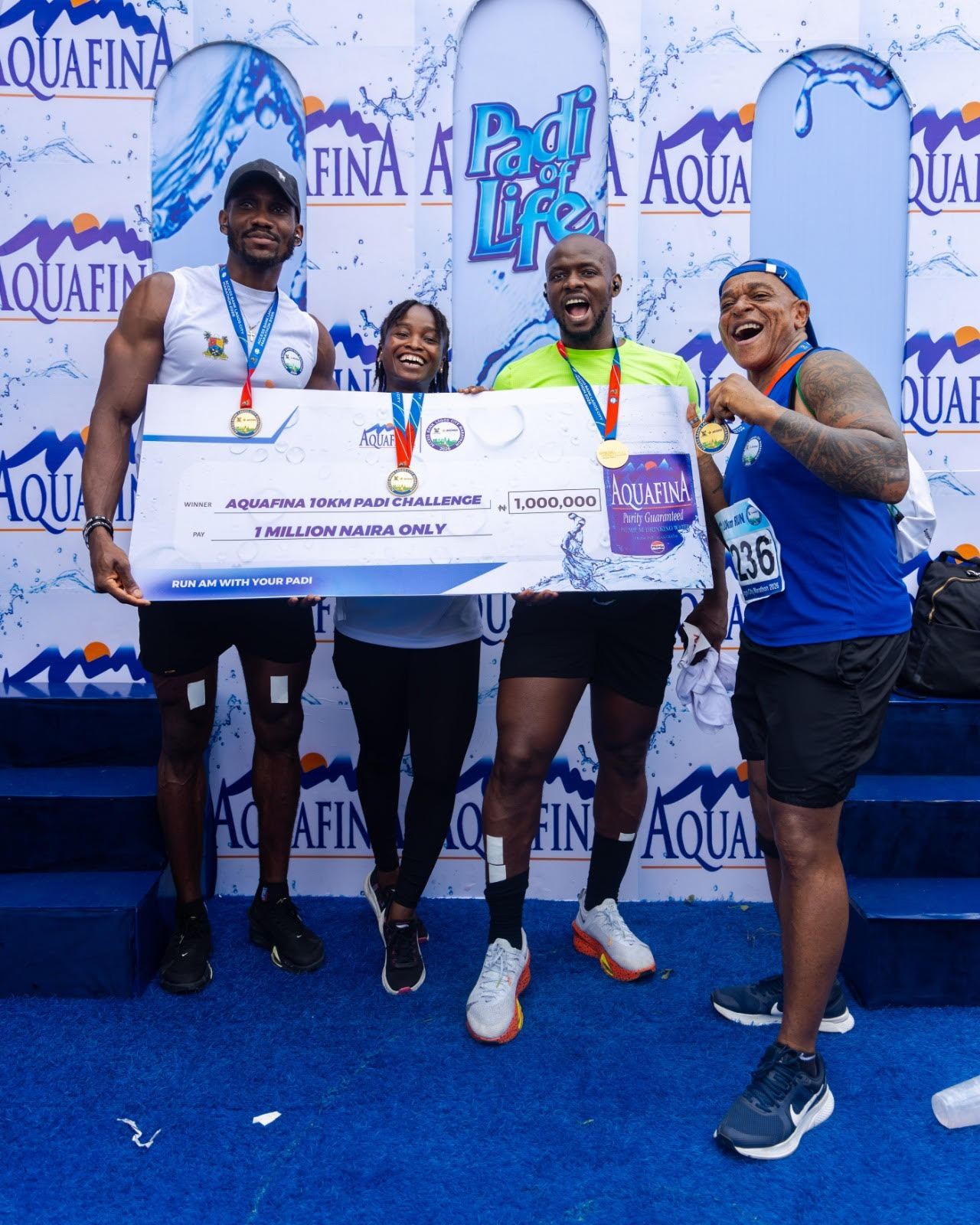
Aquafina took centre stage at the 11th edition of the Access Bank Lagos City Marathon on 14 February 2026, rewarding the first ten groups to complete the 10-kilometre race with N1 million each. The initiative highlights the brand’s continued investment in fitness, wellness, and the spirit of collective achievement within Nigeria’s growing running community.
Under its campaign theme, “Run am with your Padi of Life,” Aquafina encouraged runners to participate alongside friends, teammates, and running crews, celebrating the role of support systems in pushing limits and sustaining performance.
Throughout the race, Aquafina ensured strong on-course visibility while providing hydration support to help participants maintain energy levels. Its on-ground activations added excitement for both runners and spectators, contributing to the vibrant atmosphere of the event.
By rewarding groups rather than individual runners, Aquafina spotlighted the value of shared goals and mutual accountability. The N1 million prize elevated the competitive energy of the 10km race while reinforcing the importance of collaboration within Nigeria’s evolving fitness culture.
Widely regarded as one of West Africa’s most prestigious road races, the marathon once again attracted elite athletes, recreational runners, corporate teams, and fitness enthusiasts from across the country and beyond. Within this high-energy environment, Aquafina positioned itself as a trusted hydration partner supporting endurance and peak performance.
Speaking after the race, Funso Elubeku, Assistant General Manager at Seven-Up Bottling Company (SBC), said:
“The Access Bank Lagos City Marathon represents resilience, discipline, and the power of community. Through Aquafina, we ensured participants remained hydrated while celebrating the teamwork and support that helped runners push beyond their limits. Rewarding the first ten finishers underscores our commitment to recognising dedication, performance, and personal achievement.”
Aquafina’s presence at the marathon underscores its broader mission to promote active lifestyles and support platforms that inspire healthier living, strengthening its connection with Nigeria’s fitness community through meaningful engagement.
Sports
Mourinho’s Return to Madrid, a Battle Between Ligue 1 Giants and more: Bet on the Key Champions League Matches!
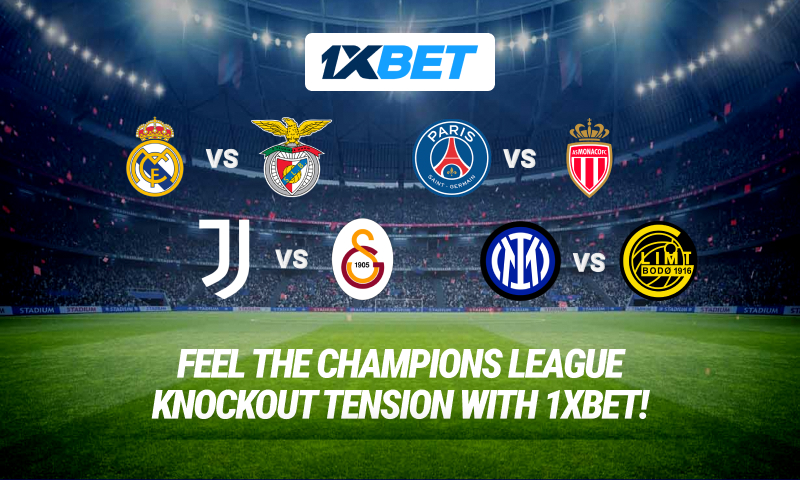
On February 24 and 25, the knockout phase return legs of Europe’s most prestigious club tournament will take place. The best sports betting site 1xBet offers a wide selection of markets and the highest odds for these games. Place your bets responsibly via this link and win big!
Inter Milan vs Bodø/Glimt, February 24
The runners-up of last season’s Champions League are in danger of being knocked out of the competition in the knockout phase play-offs. In Bodø, Cristian Chivu’s team lost 1-3 on artificial turf, which Inter aren’t used to playing on. According to the Nerazzurri coach, the poor condition of the pitch was to blame.
Inter are in a difficult situation. However, the team has scored 11 goals in their last 3 home games and is quite capable of making a comeback. The bad news is that Lautaro Martínez will miss the match due to an injury sustained in Norway.
Bodø/Glimt are certainly not in a state of euphoria. After the match, head coach Kjetil Knutsen said that his team had delivered an average performance. If the Norwegians manage to maintain their lead in the return leg, this story will one day be made into a TV series.
W1 – 1.302, X – 6.96, W2 – 9.65
Paris Saint-Germain vs AS Monaco, February 25
0-2, a missed penalty and an injury to the team’s leader by the middle of the first half – it’s difficult to get back into the game after such a start, but not for Paris Saint-Germain, an official partner of 1xBet. In the first match against Monaco, the Parisians equalized before the half-time break and snatched victory in the second half.
Monaco showed that they can surprise any opponent, but in the 2nd leg, the home side will take to the pitch with maximum concentration from the very first minutes. The statistics don’t favor the Monégasques: they’ve only managed to win at PSG’s home ground once in the last 9 years.
Luis Enrique’s team is the clear favorite in the 2nd leg and will try to take another step towards defending its title.
W1 – 1.29, X – 6.55, W2 – 11.4
Real Madrid vs Benfica, February 25
José Mourinho returns to Madrid, but we won’t see him in the technical area. The Portuguese manager got a red card in the emotional match in Lisbon, but even that didn’t make him the star of the show. The glory went to Vinícius Júnior. The Brazilian scored a spectacular goal in the second half, danced provocatively around the corner flag with the Benfica crest, got insulted, and in the end, these events were discussed more than the game itself.
Despite the victory, Real Madrid didn’t look significantly stronger than their opponents. Every now and then, the Eagles took control of the ball and forced Thibaut Courtois to make some incredible saves.
Before the 1st leg, José Mourinho said he wanted the score in the first match to allow his team to fight for a spot in the next stage in Madrid. He got what he wanted, but there’s a feeling that most of his football magic went into Anatoliy Trubin’s goal in the league phase.
W1 – 1.494, X – 5.08, W2 – 6.7
Juventus vs Galatasaray, February 25
Luciano Spalletti had said that his team was going to Istanbul to win, but the final score of 2-5 leaves them with almost no chance of advancing to the round of 16. Barış Yılmaz utterly destroyed the opposition’s left wing, which is where most of the threats to Juventus’s goal came from.
Galatasaray won’t have a fiery support of the stands in Turin. However, the team is in excellent form: in their first 5 matches in February, the Lions have scored 20 goals.
Many believe that Juventus advancing to the next stage would be a miracle. However, in this Champions League campaign, Galatasaray have already lost 1-5 to Eintracht Frankfurt, who are far from being the strongest team, and the Bianconeri must have faith in their abilities.
W1 – 1.564, X – 4.925, W2 – 5.78
We hope that our preview will help you make successful predictions. Follow the principles of responsible gambling, place your bets on the best sports betting site 1xBet via this link and share the victory with your favorites!
SMM
🏆⚽ Bet on the Champions League knockout phase 2nd legs!
📅 The fate of the tickets to the round of 16 will be decided on February 24 and 25. We’ve compiled a list of the most interesting matches for you:
❓ Inter vs Bodø/Glimt: can last season’s runners-up come back from a 1-3 defeat in the 1st leg?
W1 – 1.302, X – 6.96, W2 – 9.65
🚀 Paris Saint-Germain vs Monaco: in the 1st leg, the Parisians came back from 0-2 down and are looking to take another step towards defending their title.
W1 – 1.29, X – 6.55, W2 – 11.4
🧤 Real Madrid vs Benfica: the Meringues won by a narrow margin in Lisbon, but their opponents cannot be underestimated – even the goalkeeper can score for José Mourinho’s team.
W1 – 1.494, X – 5.08, W2 – 6.7
🔮 Juventus vs Galatasaray: can Luciano Spalletti’s team pull off a miracle after a 2-5 defeat in Istanbul?
W1 – 1.564, X – 4.925, W2 – 5.78
💰 Bet and win with 1xBet!
-

 Feature/OPED6 years ago
Feature/OPED6 years agoDavos was Different this year
-
Travel/Tourism10 years ago
Lagos Seals Western Lodge Hotel In Ikorodu
-

 Showbiz3 years ago
Showbiz3 years agoEstranged Lover Releases Videos of Empress Njamah Bathing
-

 Banking8 years ago
Banking8 years agoSort Codes of GTBank Branches in Nigeria
-

 Economy3 years ago
Economy3 years agoSubsidy Removal: CNG at N130 Per Litre Cheaper Than Petrol—IPMAN
-

 Banking3 years ago
Banking3 years agoSort Codes of UBA Branches in Nigeria
-

 Banking3 years ago
Banking3 years agoFirst Bank Announces Planned Downtime
-

 Sports3 years ago
Sports3 years agoHighest Paid Nigerian Footballer – How Much Do Nigerian Footballers Earn


